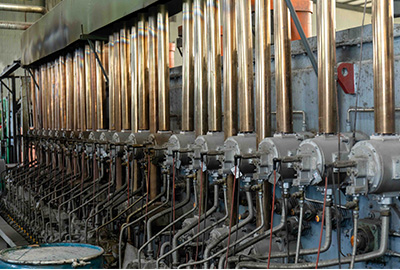Understanding the Specifications and Applications of Buy DIN 939 Stud Bolt in Fastening Solutions
Aug . 12, 2024 08:22 Back to list
Understanding the Specifications and Applications of Buy DIN 939 Stud Bolt in Fastening Solutions
Understanding the Importance of Buying DIN 939 Stud Bolts
When it comes to industrial applications, the selection of fastening hardware is crucial for ensuring structural integrity and safety. Among the various types of fasteners available in the market, DIN 939 stud bolts stand out for their reliability and versatility. This article explores the significance of choosing the right stud bolts, with a specific focus on DIN 939 standards, highlighting their characteristics, applications, and considerations when making a purchase.
What is a DIN 939 Stud Bolt?
DIN 939 stud bolts are a specific type of fastener designed to be used in high-stress applications. According to the Deutsches Institut für Normung (DIN) standards, these stud bolts have a defined set of dimensions, properties, and material specifications that ensure consistent quality and performance. Typically made of high-strength materials like stainless steel or alloy steel, DIN 939 stud bolts feature a smooth body with threads that run along a portion of their length, allowing for effective engagement with nuts or other threaded components.
Characteristics and Benefits
One of the key characteristics of DIN 939 stud bolts is their robustness. They are engineered to withstand high tension and shear loads, making them ideal for applications in construction, manufacturing, and mechanical engineering. Unlike standard bolts, stud bolts provide a greater surface area for load distribution, which minimizes the risk of deformation and failure under pressure.
Moreover, DIN 939 stud bolts are versatile; they can be found in various configurations, including different lengths, diameters, and thread types. This versatility ensures that they can be utilized in diverse applications, ranging from heavy machinery to structural frameworks.
Applications of DIN 939 Stud Bolts
Due to their high strength and reliability, DIN 939 stud bolts are often employed in critical applications, including
buy din 939 stud bolt

1. Construction Used in steel frameworks, bridges, and buildings where high tensile strength is essential. 2. Automotive Industry Integral parts of engines, chassis, and body assemblies where vibration and movement are prevalent. 3. Aerospace Critical for aircraft structures and components, where safety and performance are paramount. 4. Manufacturing and Machinery Used in heavy machinery, ensuring that components remain secure under rigorous conditions.
Considerations When Purchasing DIN 939 Stud Bolts
When considering the purchase of DIN 939 stud bolts, several factors come into play
- Material Quality Ensure that the bolts are made from appropriate materials that meet or exceed industry standards. Stainless steel offers resistance to corrosion, while alloy steels provide additional strength.
- Thread Specifications Understand the thread type required for your application. Different threads have varying engagement properties, affecting the overall strength and stability of the joint.
- Length and Diameter Careful measurement of the required bolt length and diameter is crucial, as it directly influences the load-bearing capacity and compatibility with nuts or other fasteners.
- Supplier Reputation Purchase from reputable suppliers or manufacturers who can provide certifications and quality assurances. This can minimize the risk of acquiring subpar products that may not meet necessary safety standards.
Conclusion
In conclusion, purchasing DIN 939 stud bolts is a decision that should be made with careful consideration of their properties and applications. Their strength, versatility, and reliability make them an essential component in a variety of industrial fields. By investing in quality DIN 939 stud bolts from reputable sources, engineers and manufacturers can ensure the safety and durability of their structures and machinery, contributing to overall operational success and longevity.
Latest news
-
Premium Phosphated Drywall Screws Supplier | Durable, Rust-Resistant
NewsAug.27,2025
-
Reliable Wire Bolts Suppliers | Quality Zinc Plated Fasteners
NewsAug.26,2025
-
Wire Bolts Suppliers: Durable & Reliable Fasteners for Every Project
NewsAug.25,2025
-
Premium Cabinet Bolts Supplier | Wholesale & Custom Solutions
NewsAug.24,2025
-
Reliable Axle Nuts Supplier | Quality & Precision Fasteners
NewsAug.23,2025
-
Durable Bolts for Lawn Mower Handle - Top Supplier & Manufacturer
NewsAug.22,2025
